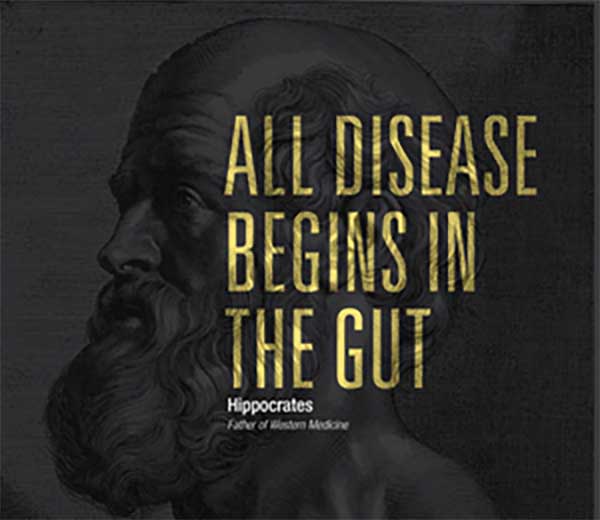
“All disease begins in the gut” ~Hippocrates
Many would argue this is not literally true, yet it does hold great truth.
Your “gut” entails everything from your mouth to your anus. This includes:
- Mouth (teeth, tongue, salivary glands)
- Esophagus
- Stomach
- Small Intestine
- Large Intestine (Colon)
- Rectum
- Anus
This tract of digestive organs is responsible for more than just squishing your food up real good and absorbing it all.
Did you know?
The Gut is also known as the Second Brain because so many other systems of our bodies are controlled by what happens (or fails to happen) here. This includes our immunity and the production of key vitamins, neurotransmitters and even our hormones.
The heart of our Immune System (a whopping 70-80%!) is located in our small intestine. Without your small intestine, you would not be able to break down and assimilate brain healthy fatty acids like Omega-3s or formulate critical B-vitamins, and hormones like serotonin and progesterone. In addition, proper function of your small intestine is critical for your body’s production and absorption of thyroid hormones.
Your large intestine is responsible for processing and absorbing minerals like zinc, magnesium and potassium. Another job is to absorb water and recirculate digestive juices like bile and pancreatic enzymes.
While all disease doesn’t literally start in the gut, there are so many metabolic, autoimmune, degenerative, neurological and cognitive diseases that begin with simple gastrointestinal disturbances and imbalances. These can result in bloating, acid reflux, diarrhea, gas and constipation OR brain fog, lack of concentration, poor memory, depression and anxiety. If unaddressed, over time these symptoms can cascade into more serious conditions.
Gut health is a pretty complex subject with many interconnecting layers that help paint an overall picture of your body’s health. Most conditions today involve a myriad of factors, not just one. It just so happens that the health of your gut is usually one of them.

